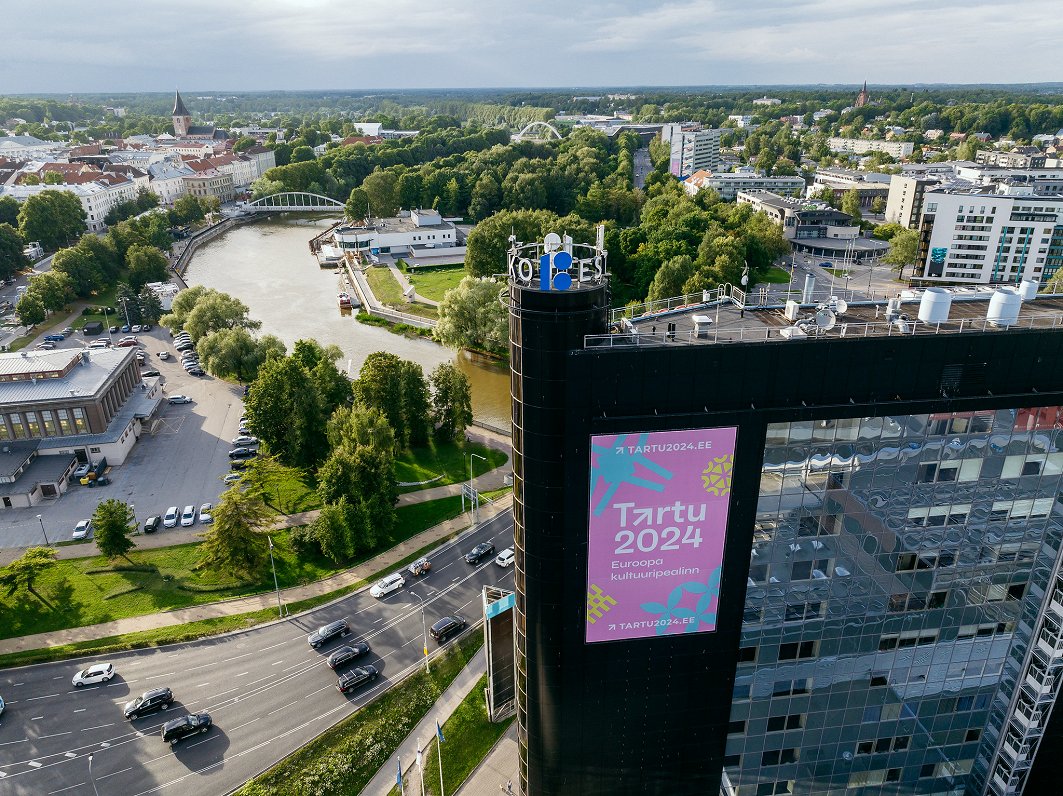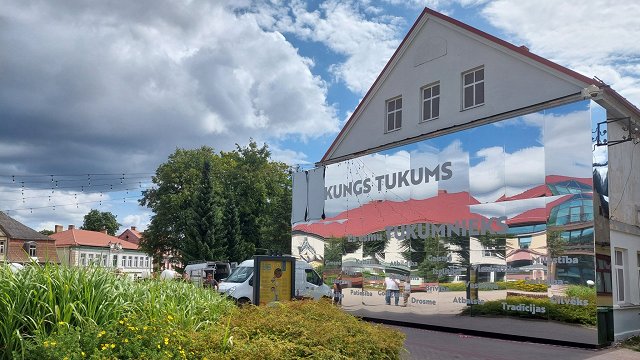As well as Latvia, the main target markets outside Estonia are Finland, Lithuania, Germany and the UK, according to Tartu 2024's effervescent Chief Executive Officer, Kuldar Leis. His background is in business, and he's keen to stress that the benefits of being a capital of culture make economic sense as well as being culturally desirable and very useful for city branding purposes.
From a total budget of around 25 million euros, Leis estimates that the city will gain 100 million euros' worth of benefits, and the target is to attract 1 million visits – as opposed to visitors – to Estonia's second city during the capital of culture period from the opening ceremony on January 26 to the closing ceremony on November 30.
Describing it as a "once in a lifetime opportunity", Leis says he's relishing the chance of putting Tartu and, just as importantly, a huge surrounding area of his native south Estonia, on the map.
"The people in northern Estonia actually don't know how good southern Estonia is, how good and how calm life is here," he tells LSM. The experience of being involved with Tartu 2024 has already broadened his own cultural horizons, he says, and he hopes the same will be true for others who come into contact with ten months of events.
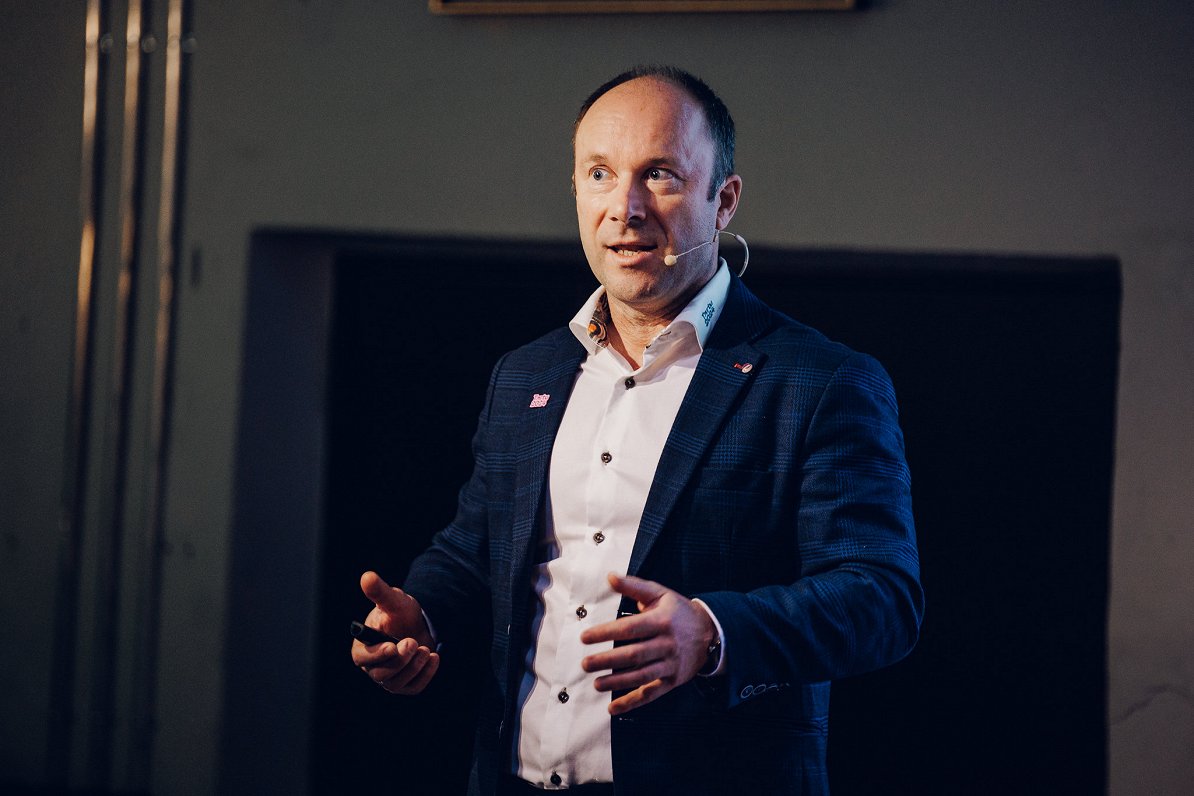
"The most important thing is not the financial side – it''s the tens or hundreds of young people who will organize cultural events in southern Estonia, who will grow even after 2024 and continue cultural development in the region. We don't have so many people, so it's important to be alive, from the cultural side."
With southern Estonia still undiscovered to many northern Estonians, it's entirely possible that many northern Latvians are more familiar with it.
"Actually, Latvia is our number one market and neighbor. We already have lots of Latvians coming here – for example almost half the visitors to the Upside Down House [tourist attraction] are from Latvia. So we have an important connection, and a border city – Valka-Valga – where we will have a special theater event called 'Though the City'. The idea is that local people in Valka and Valga will collect stories and then actors will play the stories as a walking theater in both languages.
In fact, almost the first thing people crossing the border from Latvia (Valka) to Estonia (Valga) see is already a giant sign advertising the capital of culture in Estonian, English and Latvian.
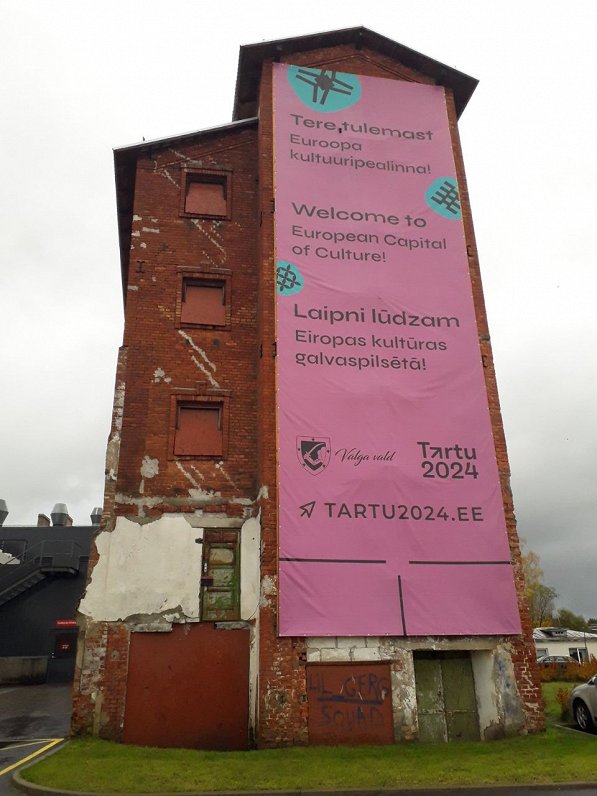
"The second special Latvia case is between the two theaters in Viljandi and Valmiera. The name is 'Neighbors', and it's a love story between an Estonian guy and a Latvian girl – or vice versa!" laughs Leis. "But I think Latvians and Estonians have never been so connected as they are now."
Asked what his personal highlights of the capital of culture program are, he selects a sauna conversation festival being run by Tartu's Finnish community and a bold musical-theatrical attempt to tackle the Danske Bank money-laundering scandal that rocked the Estonian banking sector.
Leis is clearly sincere in his desire to both draw attention to southern Estonia and also show that it is a region with its own character and way of life that visitors can appreciate.
"I hope young people will stay in Estonia and continue the cultural life here, because without local culture we will not survive. It's why 'The arts of survival' is our key phrase. The number of people is gradually declining. Of course some people will leave, whether it's to work in Finland or the UK. But more and more, very clever people are coming back to live in southern Estonia and work from here.
These people have a big value for southern Estonia, not in numbers, but the influence is huge. The speed of life is much better in southern Estonia – it is better because it is slower!"
Members of the Liepāja capital of culture team have already been in regular touch with Tartu, and Leis is extremely complimentary about them, giving them a big thumbs up. But he, in turn, admits that Kaunas in Lithuania's stint as a Capital of Culture in 2022 has also helped Tartu.
"We learned from Kaunas and Liepāja can learn from us!" he says.
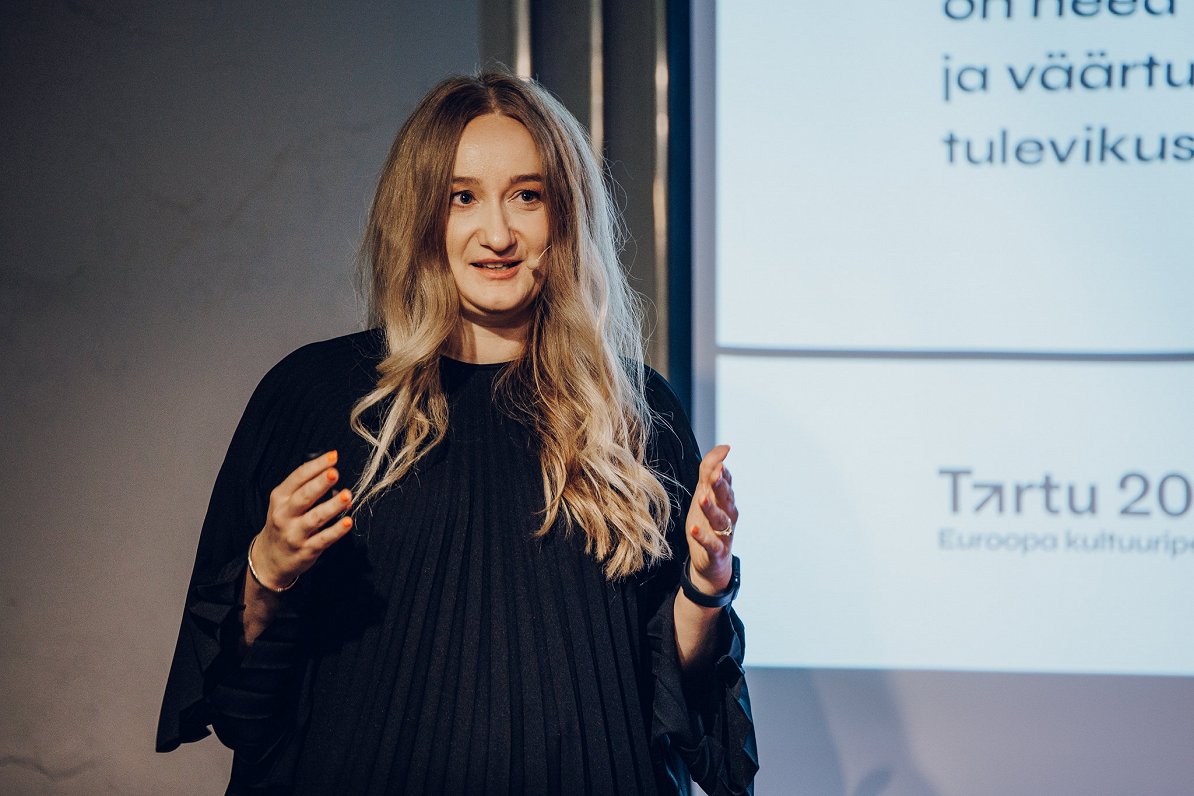
Responsible for putting together a daunting program of 350 projects, and nearly 1,000 individual events is the Capital of Culture's Artistic Director, Kati Torp, and she takes up the 'arts of survival' theme.
"Arts of survival refers to those skills, knowledge and values that we already have and also those that we want to develop further in order to lead a good life. It has been a journey. We developed the concept five years ago, and Europe was a very different place five years ago.
"Back then it resonated mostly with the climate crisis and environmental issues. Later we saw the Covid outbreak and then we are actively addressing the war in Ukraine, so there are many layers that have been added to the concept 'the arts of survival'. I find it even more urgent and timely now than it was in 2019 when we won the title."
Torp is in charge of four different thematic 'program lines' involving the Earth, Humanity, Europe and the Universe, but stresses that they are not mutually exclusive and are extremely broad, covering everything from an "anti-camouflage net that will bring Ukrainian stories onto the streets of Tartu" to a celebration of the centenary of the publishing of the Surrealist Manifesto by Andre Breton.
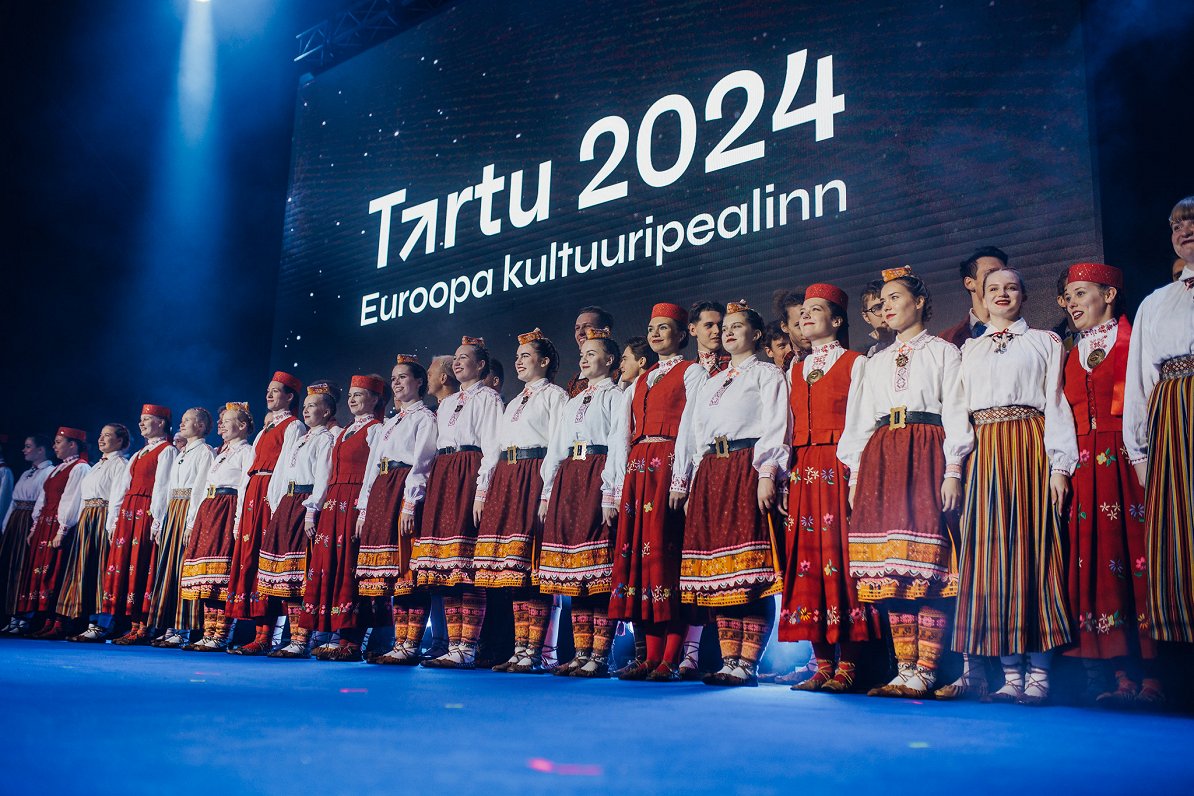
Other highlights will include a "mass kissing action" in mid-May and a major solo exhibition by Japanese artist Ryoji Ikeda at the Estonian National Museum.
Renowned Latvian film-makers Andris Gauja and Viesturs Kairišs are among eight directors making special documentary films for Tartu 2024, and anyone still pining for massed choral music after Latvia's spectacular Song Festival in 2023 year might like to check out the Estonian equivalent in 2024 – that, too, will be happening in Tartu.
However, while Tartu and southern Estonia are already a popular destination among many Latvians, there is still no announcement about something that would undoubtedly boost those numbers signifcantly in 2024 – the reintroduction of a direct Rīga to Tartu train service. Tartu mayor Urmas Klaas was unable to give any good news when asked about the train service by LSM, saying that negotiations at governmental level still needed to take place.
"It is a top priority, but I hope our governments will form a decision on this issue," said Klaas.
For now, Latvians will either have to make the trip north using their own transport or take advantage of a promised increased number of coach departures from Rīga.
October 19 saw the official launch of the capital of culture program, 100 days before the event itself goes live. To mark the occasion a concert titled "One Hundred Nights and Days to the Arts of Survival" was broadcast on national television and saw musicians Alika Milova, Mari Kalkun and Maris Pihlap perform, plus musician and producer NOËP, who performed a new song titled "Young Blood City," which is the official anthem for Tartu 2024.
The arrival of freezing sleet and snow during the concert was not enough to dampen the spirits of the audience – though it did provide a timely reminder that however abstract and noble the concepts promoted by capitals of culture can be, organizing such large-scale events always ultimately comes down to practical logistics – and a little bit of luck.
For more information about what to expect from Tartu 2024, you can see the official webpage https://tartu2024.ee/en/ and Facebook page https://www.facebook.com/Tartu2024.
